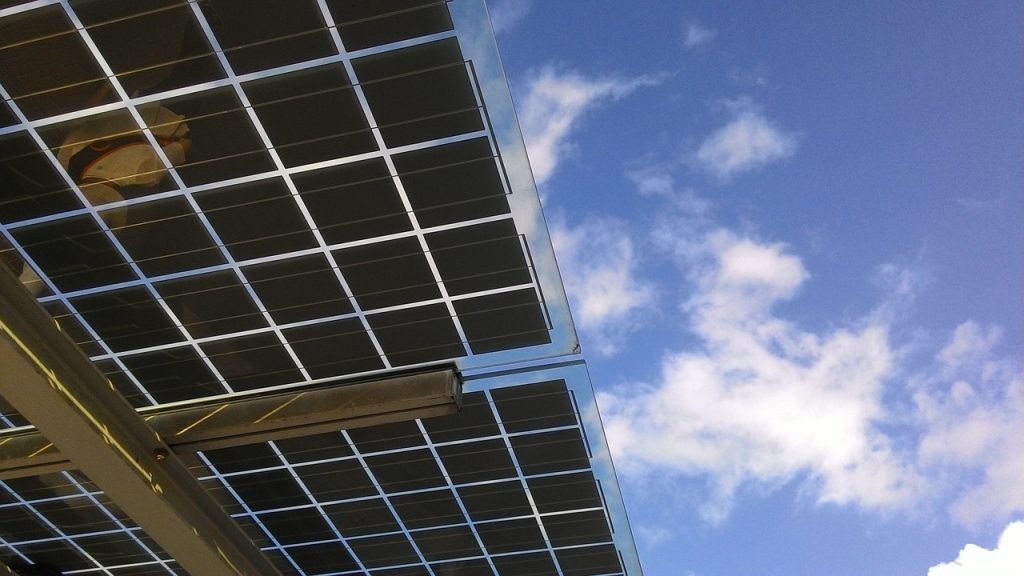There’s a silver lining to the pandemic: the worldwide quarantine measures that have shut or slowed down production, travel, and the way people commuted daily have helped the environment recover. The change in the daily habits of companies and individuals means that air quality has improved and wildlife has started roaming freely in places they never dared to venture before.
The global slowdown changed how companies consume energy and fossil fuels. Besides the mentioned environmental improvements, the changes benefit a company’s bottom dollar. As the world starts to move forward again, how can businesses of all sizes preserve this environmental progress?
Reduce Daily Vehicle Commutes
If your company adopted a remote work program to keep employees working during the COVID-19 stay-at-home orders, maintaining the program at some level is beneficial to the environment. It may not be possible for your company to operate 100% remotely, but perhaps your staff can work at home in shifts. For example, certain employees in your marketing department could work remotely if they were to opt-in, or your HR department or accounting staff can work from home on data entry days.
Besides reducing the amount of time your employees spend commuting, you can provide cleaner transportation alternatives. Companies with urban headquarters could introduce a bike-share or electric scooter program. It may require some planning to reduce the likelihood of bicycle accidents such as holding a safety training with the staff, adding bike lanes on larger company campuses, or requiring employees to wear helmets on-site, but the infrastructure improvements can add to your company’s position as an environmentally-responsible business.
Provide Assistance to Remote Workers
Companies serious about environmental stewardship need an eco-friendly action plan for the company headquarters and wherever else it does business. Your company’s remote work program may have been designed to keep your team safe and healthy during the pandemic, but it can still work well after the COVID-19 outbreak is mitigated. There are some small investments you can make at the locations of your remote workers to ensure that your company’s environmental impact is minimal.
Providing your remote workers with reimbursements for making small home upgrades that reduce their energy usage and improve their productivity is a worthwhile investment. Your workers will appreciate it: small improvements could add to their home’s value. Consider the following ways your company can provide rebates or offer reimbursements:
- Paying for an upgrade of home internet service for a faster and more reliable connection can improve a worker’s productivity levels.
- Offering to pay workers to switch their home’s light bulbs to eco-friendly LED lightbulbs can reduce their energy consumption while they work.
- Converting files, receipts, and paperwork to digital versions will reduce the amount of paper use your company is responsible for as well as reduce the amount of waste it creates.
Turn to Clean and Alternative Energy Sources
If your company operations were shut down or scaled back due to the coronavirus, the amount of money you saved in utility bills during the time was probably significant. A company’s utility expenses are often a sizable part of its spending. Green energy sources could reduce the amount of money you spend on keeping the lights on.
Some of the largest corporations in the country such as Target and Walmart have switched to alternative energy sources like solar power. Those two, specifically, seem to be in a race to go green first. The decision may be a good public relations move — customers want to see the brands they support go green. But the move to clean, alternative energy is also a wise financial decision. Solar power is 90% cheaper today than it was just 10 years ago.
For smaller businesses without the financial spending power of corporations like Target, Walmart, and Apple, switching to solar infrastructure may not be feasible. Many companies lease their locations and may not want to invest long-term capital improvements to upgrade the location’s power source. Those small business owners may be able to negotiate a longer lease with the owner or mutually share in the cost of the solar power or alternative energy upgrade since it adds to the commercial space’s value.
If negotiating with a landlord isn’t an alternative, there are still ways a small business owner can participate in greener energy options:
- In some states, you can choose who you buy your utilities from and choose an alternative energy source
- Switch the business vehicle fleet to hybrid or electric vehicles
- Fuel the company vehicles using biofuels
- Improve a building’s energy efficiency by upgrading HVAC units or lighting with ENERGY STAR certified alternatives and practices
Energy Lessons From the COVID-19 Pandemic
The modern world has not seen anything like the coronavirus pandemic. The outbreak of the highly contagious virus shut the world down quickly. The unprecedented event impacted many businesses and individuals negatively but highlighted how quickly the earth can recover from our dependence on fossil fuels. Getting back to business is inevitable and welcome by most, but there are ways to bank on the environmental improvements and learn from them to create a more environmentally conscious business and future.

 Alternative Energy HQ solar power for homes, wind energy, and bio fuel issues
Alternative Energy HQ solar power for homes, wind energy, and bio fuel issues








One comment
Pingback: Actionable Steps to Reduce Your Business’ Carbon Footprint – Alternative Energy HQ